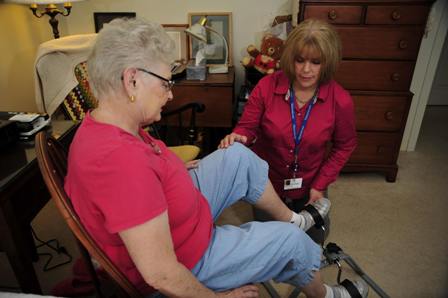What is Home Health?Home health encompasses a range of health and social services that are delivered at home to recovering, disabled, chronically or terminally ill persons in need of medical, nursing, social or therapeutic treatment and/or assistance with the essential activities of daily living. Home care allows an individual to maintain or regain independence through skilled nursing, aid and therapy services. Home health services provide an excellent, cost-effective way for a client to stay in their home as long as possible. Depending on the level of acuity and financial situation, people are able to stay in their home with assistance from home health agencies. Generally, home health is appropriate whenever a person prefers to stay at home, but needs ongoing care that cannot easily or effectively be provided solely by family and friends. More and more older people, electing to live independent, non-institutionalized lives, are receiving home care services as their physical capabilities diminish. Younger adults who are disabled or recuperating from acute illness are choosing home care whenever possible. Chronically ill infants and children are receiving sophisticated medical treatment in their loving and secure home environments. Adults and children diagnosed with terminal illness also are being cared for at home, receiving compassionate care and maintaining dignity at the end of life. As hospital stays decrease, increasing numbers of patients need highly skilled services when they return home. Other patients are able to avoid institutionalization altogether, receiving safe and effective care in the comfort of their own homes. Who Needs Home Health?Generally, home health is appropriate whenever a person prefers to stay at home but needs ongoing care that cannot easily or effectively be provided solely by family and friends. More and more older people – electing to live independent, non-institutionalized lives – are receiving home care services as their physical capabilities diminish. Younger adults who are disabled or recuperating from acute illness are choosing home care whenever possible. Chronically ill infants and children are receiving sophisticated medical treatment in their loving and secure home environments. Adults and children diagnosed with terminal illness also are being cared for at home, receiving compassionate care and maintaining dignity at the end of life. As hospital stays decrease, increasing numbers of patients need highly skilled services when they return home. Other patients are able to avoid institutionalization altogether, receiving safe and effective care in the comfort of their own homes. Affordable Care ActThe Affordable Care Act was signed into law in 2010. It puts in place comprehensive health insurance reforms. |






